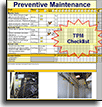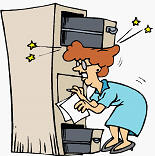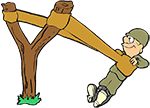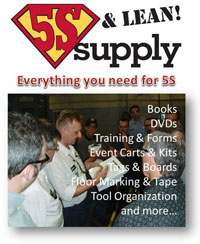Installation and Setup
Installation - Each User. Installation - Multi-user. Language Translations. Personalize Your Templates.Systems2win Training.
Quick Start Initial Training. New User Training. Training Matrix. Systems2win Leadership. Training Classes.Lean Training
Lean Training and Coaching. Lean Principles. Muda 8 Wastes. Goal - Lean Flow. Roadmap - Lean Journey. Value Stream Mapping. Standard Work. Hansei Lean Thinking. Lean Dictionary. Online Lean Training. Lean Leadership.Microsoft Office Training
Excel Training. Excel Drawings (without Visio). Excel Charts. Word Training. PDF Training. Document Storage and Naming.Support
Support.Lean 5S Checklist
and more 5S Tools
beyond your 5S Audit Checklist

Download 5S Scorecard
and more Excel templates
Most Lean initiatives start out with a 5S system to get things cleaned up and organized as one of the first steps toward continuous improvement.
Your Systems2win Lean Tools include several professionally developed Excel templates for 5S Assessment, Red Tags, and Sustainment.
5S Tools
Not just one 5S Checklist, but an entire suite of Excel templates to make it much easier to implement several of the most difficult challenges of any Lean 5S System.
5S Checklist
for Lean Manufacturing and Lean Office
also known as 5S Assessment Checklist, 5S Audit Checklist, or 6S Checklist
Purpose of the 5S Audit Form
Use your 5S Assessment template (5S.xlsx) to measure and improve 5s workplace organization, instill 5s philosophy, and evaluate success of your lean 5s system.
3 tools in 1
- 5S Audit Checklist
carried on a clipboard as a supervisor physically inspects the gemba
(where the work is performed)
as prescribed in their Leader Standard Work - Trend Charts
to monitor and manage improvement over time
- Accountability Scorecard
Easily publish a radar chart and thermometer chart for any selected audit period
Print, post, and socialize the Trend Charts and Radar Scorecard on your Team Accountability Board to motivate your team members to continuously improve their 5S workplace organization.


Training for your 5S Checklist template
See online training for how to use your 5S Assessment template
Personalize your 5S Audit Checklist
- Use everything you know about familiar Microsoft Excel to customize your templates your way.
- The radar chart and thermometer charts easily scale between 5, 6,or even 7S categories.
- Every time you upgrade, the Systems2win Personalization Upgrade Utility automatically finds YOUR personalizations and merges them into your new upgraded templates.
- Every Systems2win Excel template is available in ANY language.
- The 5S and Lean Assessment templates have even more special personalization features, like the ability for each user of the template to personalize their own rating criteria.

Your personalizations
get found and transferred
each time you upgrade
Why reinvent?

5S Scorecard template

Use your 5S Scorecard template (5S.docx)
if you prefer to use a very simple Word template.
(Most users appreciate the useful advanced features of the Excel template)
5S Standard template
Purpose

Use your 5S Standard template (5SStandard.xlsx)
to clarify expectations for 5S workplace organization and housekeeping, and/or to serve as a "before and after" storyboard.
How
- Personalize your working document
by selecting your desired section headers and team roles from the drop down lists
For example, this might be a 'before and after' storyboard.
Or it might depict the standards for what the work area should look like during working hours and after final cleanup has been completed at the end of each work day. - Edit
inserting pictures, and writing written descriptions
- Print and post
in a highly visible place in or near the Work Area
Tip: Refer to your Standards documents from your 5S Assessment Checklist
so that many diverse work areas can share the same (more generally worded) assessment criteria, by referring to the (more detailed) 5S Standards unique to each work area.
5S Red Tags and Red Tag Log
Purpose of 5S Red Tags
Use your 5S Red Tags template (5SRedTag.xlsx)
to provide a systematic approach to your Sort activities.
Every employee should be trained
Every employee should be trained to attach a Red Tag to any item that they suspect might be unnecessary within their work area.
When in doubt — tag it
Ideally train your employees using the TWI Job Instruction method, so that they really "get it", and don't just say, "yeah, yeah".
AT ANY TIME... (this is not a one-time project)
a supply of Red Tags should always be available in a known, easily-accessed location.
(pre-printed, pre-cut, with one stack intended to be taped to the item, and other stack with a wire attached through a punch hole with a reinforcing grommet that can be purchased from any office supply store)

Before disposition...
the Team Leader approves the suggested Action,
and an entry is made into the Red Tag Log for that Work Area.
If there is ANY doubt...
the item is moved into the temporary Red Tag Storage area, where it can be easily retrieved if the item proves necessary after all.
When items are moved from Red Tag Storage,
the Red Tag Log is updated to record the ultimate disposition.
5S Sustainment Checklist
Your Systems2win 5S tools come with two Preventive Maintenance Checklists.
Preventive Maintenance Checklist

Preventative maintenance checklist for tasks that occur on a monthly cycle or greater.
Usually performed by a central Maintenance Department.
5S Sustainment Checklist

Preventative maintenance checklist for tasks that occur on a daily, weekly, or monthly cycle.
Usually performed by the process operator.
See the online training for how to use your Preventive Maintenance templates
More Lean Management Tools

Every lean tool needs
a corresponding
Lean Coaching System
Your 5S tools are just one component
of a successful lean management system.
Successful Lean companies know...
when top management stops paying attention, everyone else soon follows.
When you purchase any bundle of Systems2win templates,
you also get a variety of lean management audit checklists that are important components of any well-designed lean management system.

Training for 5S Tools
5S Video & Training
- How to Use the 5S Assessment Template
- Standardize Work (the 4th S is by far the most important)
- Lean Assessment
- How to calibrate audit assessment criteria
to get consistent scores from diverse lean leaders.
Additional training
relevant to these 5S Tools
The Sample and Help worksheets of every template always contain training relevant to THAT template
- Quick Start Initial Training
What every user should know to use any Systems2win template - How to Personalize your Systems2win templates
- Additional Personalization Tips for Assessment templates
- Support &Training home page
Language Translations
Translations available for immediate delivery include:
- Spanish: Evaluación 5S
- Portuguese: Avaliação 5S
- French: Évaluation des 5S
- German: 5S-Beurteilung
- Chinese: 5S 评估
What is 5S?
aka 6S, 5S system, program, methodology, principles, process, standards, lean 5S...
A 5S System uses 5S methodology to organize the workplace, reveal problems, and sustain improvements.
See training for how to get started with your 5S system.
When you are training your people, these are the core components of the 5S methodology.
Sort (Seiri)
The 5S process for workplace organization usually starts out by sorting the useful from the unnecessary. The only things that should remain in a work area are the parts, tools, and instructions needed to do the job.
Systemize aka Straighten, or Set in Order (Seiton)
Everything has a place; everything is in its place.
This is also a good time for your team to create a visual scorecard, Jidoka andon lights, floor paint, kanbans, and other visual controls described in your Lean & Kaizen Training PowerPoint template. (eventTraining.pptx)
Sanitize aka Sweep & Shine (Seiso)
Do an initial spring cleaning.
Maybe painting, scouring, sweeping, washing, rinsing, scrubbing, and whatever else is needed to make your work place shine.
Use cleaning as a method of inspection. Cleanliness reveals problems.
Standardize (Seiketsu)
In the Standardize phase of Lean 5 S, routine cleaning becomes a way of life.
Preventative maintenance is routinely performed, perhaps with planning and scheduling and some responsibilities done by your central maintenance department, and as much routine maintenance as possible performed by the people that know that work center better than anyone else.
Sustain (Shitsuke)
Shitsuke is when five S becomes a routine way of life. Root causes are routinely identified and dealt with. The Systems2win 5 S forms and the Standard Work Audit are very familiar to everyone — both supervisors and the workers that have come to appreciate the benefits of Five S and Lean methods.
What is 6S?
Safety (the 6th S)
Some companies name it a 6S program — to emphasize safety — but the fact is that safety is inseparably intertwined with every one of the traditional 5 categories.
An uncluttered workplace is a safer workplace. A well maintained piece of equipment is a safer piece of equipment. A clean workplace is a safer workplace. The Deep Horizon oil spill would not have happened if the workers had followed their Standardized Work.



Benefits of Lean 5S
When a lean newcomer first hears about the concept of 5S workplace organization,
a common reaction is to ask:
"Who cares whether my workspace is clean and in order?
I've got far more important work to do.
Why don't you just leave me (and my 'organized mess') alone?"
If the only purpose of Lean 5S was to attempt to convert everyone into military-style brass polishers,
then the practice would have died long ago.
The reasons to keep your work area clean and in order are more subtle:
1) An organized workplace reduces wasted time
Have you ever watched a video of someone doing their job, and they disappear from the screen for several minutes? Wandering around looking for some misplaced tool, material, or supply?
Or maybe the worker still remains 'in the picture', but you notice their work flow getting interrupted and slowed down as they search for some... misplaced... something... that they know they "just put down"... somewhere... nearby...
2) A clean workplace reveals problems
and problems can't be resolved until they are revealed.
In an unclean workplace, it is hard to notice things like
"When did that machine start making that noise?" or
"When did that start leaking oil?"
3) Encouraging people to reveal problems is a huge culture change
In MBA school, they teach 'Management By Objective',
which is misinterpreted to mean:
"I really don't want to hear about your problems.
All we care about up here in the ivory tower are results."
A Lean Management System focuses on both:
1) Results, and...
2)
The processes that produce results
The first few times that a lean newcomer takes the career-risking chance
to shine a bright light on some problems within his or her work area will prove to be the acid test of whether or not a lean program will have any chance of working in that organization.
If management crucifies the messenger for daring to reveal a vulnerability,
then the experiment is over. Management will be correct when they say
"We tried Lean, and it doesn't work here."
If the employee is rewarded for disclosing a problem,
and the problem is systematically eliminated using some form of the PDCA scientific method, then the foundation has been laid, and the first steps of your lean journey can begin.

Why are we doing 5S?

Benefits of 5S Tools
Ready to use
Your leaders can be immediately productive, rather than wasting time re-inventing tools.
Professional charts, red tags, and reports
Every employee and visitor will see your 5S charts posted on your public bulletin boards.
What image message do you want to send?
Professional testing and debugging
Free downloads often look good at first glance, until you need to debug them.
When you find a bug, who are you going to call?
Professional technical support
Even if your IT Department is capable of supporting a home-grown tool,
is that what you want them doing?
Professionally written help and on-line training
Pop-up help, leaning exercises, lean glossary, training web pages, training videos...
All of that "ease of use stuff" that your in-house person says he could do if he had time
Easily personalized — "it's Excel"
Even if you are an expert Excel programmer... why start with a blank workbook when you could start with an already excellent tool that is easily personalized?
Easily personalized — "it's Systems2win"
Easily change rating scales, drop down lists, rating criteria, 5S or 6S...
And YOUR personalized 5S rating criteria are automatically found and transferred every time you upgrade.
Professionals use professional tools
Have you ever noticed the difference between the tools used by a journeyman vs. a handyman?
Your deliverables are a measure of your professionalism. It's your career. They're your deliverables.
How to get started with
your Lean 5S System
Your Systems2win templates come with free New User Training
to quickly learn features that are common to all 150+ templates
Training is always the first step
And because 5S is often the first introduction to the entire concept of Lean continuous improvement,
patient attention should be given to ensure that people's fears, misconceptions, and questions are fully answered.

Most importantly, management must convincingly lay to rest the fear of "improving ourselves out of a job."
See online training for your Job Security Promise template (JobAssurance.docx)
After initial 5S training
Every lean leader has their own favorite way of implementing an initial workspace clean up.
The essential thing is to have the workers evaluate every tool and machine, every pile of materials and supplies, every piece of instructional paper... to decide what is actually used, and how often.
- This can be done by marking any suspect item with a red tag, and then moving it out of the area into a temporary holding area (just in case it really is needed)...
- It can be accomplished by holding a mock auction, where the workers "bid" to plea their case for why an item should be kept.
The end result is to Sort the useful from the clutter.
Depending on the volume and complexity of the initial clutter,

Sort can be its own phase, or you might have time to move right into an initial round of Straighten and Shine.
Be sure to take before and after photos
And use your 5S Standard template (5SStandard.xlsx)
to show off those photos in a compelling storyboard format
and then distribute and socialize your highly visual success story far and wide to begin generating enthusiasm for your Lean program.
Office 5S
Five or Six S housekeeping is the most common starting point
for most successful Lean process improvement initiatives.
The exception is sometimes Lean Office
because many office workers pride themselves on being organized (even if maybe they aren't), and you want your first lean initiative to be a resounding impressive success.
Because office workers are thinkers and organizers by nature,
it is often better to start your lean initiative by encouraging the worker(s)
to come up with their own A3 improvement project — and then coach them through it.
5S for Lean Office is still, however, an essential component of an overall Lean program
that should be introduced when the office workers are ready for it.
Filing cabinets and computer hard drives often contain plenty of opportunity for 6s housekeeping.
How to Sustain your Lean 5S System
Most Lean initiatives start out with 5S training as one of the earliest initiatives,
and there is a flurry of enthusiastic cleaning and organizing.
The real test, however, is how well the new ways "stick" over time.
The success of your 5s system is often an excellent predictor
of the probable success of your greater lean manufacturing initiative.
Once you have "picked the low-hanging fruit" of the first 3 phases of 5S,
you will soon be challenged with the tougher 4th and 5th phases...
Standardize and Sustain
Your success or failure with Standard Work will determine the success or failure of your entire lean program.
The 5S templates featured on this page are really just the beginning.
There's no sense in even beginning a new flavor-of-the-month initiative if your top management is not sincerely committed to seeing this through for long-term cultural transformation.
And to do THAT...
you're going to need to look ahead at the 2 toughest phases of any 5S system:
4) Standardize
What's the point in changing anything
if people just backslide into old habits?
Learn more about tools and systems for standard work

What's so wrong with backsliding into old habits?
5) Sustain
5S isn't (successfully) implemented in isolation.
The Shingo Prize teachings make it clear...
The typical Lean Journey usually starts with using one lean tool to solve one isolated problem
(5S is a common starting point)
and then IF that initial small project is successful...
the usual, expected, and desired path is to become exposed to (and competent with) many other lean tools and methods... eventually evolving into integrated synergistic lean systems
That's what Systems2win offers...
templates, self-paced training, and systems for sustained continuous improvement
Suggested Reading and Resources for
Lean 5S Tools and Systems
- 5S for Service Organizations and Offices, by Debashis Sarkar
- 5S for Healthcare, by Thomas Jackson
- 5S Solution Packagy, by Enna
- toolshero 5S Training
These 5S templates come with with an entire suite of Continuous Improvement Tools
to empower every team member to improve every process
Contents
Download Free Trial
If your organization has
not yet provided a license,
download your free trial now

Try It
Test drive this 5S Checklist
along with a couple dozen more
process improvement tools
Download Free Trial
If your organization has
not yet provided a license,
download your free trial now
Own Yours Now
Own your own professional tools
that you can take with you for the rest of your career
Training and Coaching
Consider Training and Coaching to support your teams to succeed

Training to get you started.
Tools you won't outgrow.
Schedule a Conference
Schedule a conference
to discuss your challenges
with an experienced lean advisor
Download Trial Now
Get a dozen trial templates,
and another dozen free gifts
@@@ Better conversion rate
if call to action is for a specific tool, and shows the image

Try It
Try this template
along with a couple dozen more
process improvement tools
Calls to Action Botttom
Related Topics
Related Topics section WITHOUT TESTIMONIALS
Replace this paragraph with menu library item for topics related to this video
Training and Coaching
Consider Training and Coaching to support your teams to succeed

Training to get you started.
Tools you won't outgrow.
Schedule a Conference
Schedule a conference
to discuss your challenges
with an experienced lean advisor


















